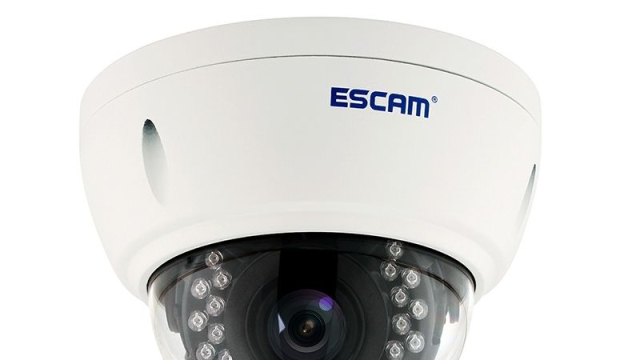
In an increasingly unpredictable world, the sense of security has become more precious than ever. The presence of security cameras has revolutionized the way we perceive safety, transforming spaces from vulnerable to fortified. These devices serve as vigilant eyes, quietly observing our surroundings and providing a layer of protection that fosters peace of mind.
Sign Up
As communities and businesses invest in security camera systems, the impact on both safety and serenity becomes evident. No longer just a tool for monitoring, these cameras play a pivotal role in deterring crime, gathering evidence, and encouraging responsible behavior. In this age of advanced technology, the integration of security cameras is not just about surveillance; it is about creating environments in which individuals feel safe and secure in their daily lives.
The Evolution of Security Cameras
The journey of security cameras began in the mid-twentieth century when the first video camera was developed for monitoring purposes. These early systems were largely analog, utilizing bulky equipment that required extensive wiring and manual operation. Law enforcement and commercial businesses were the main users of these devices, as they provided a way to deter theft and monitor critical areas. However, the technology was limited, both in image quality and accessibility.
The introduction of digital technology in the late twentieth century marked a significant turning point for security cameras. Digital systems allowed for higher resolution images, remote monitoring, and the ability to store footage on hard drives rather than traditional VHS tapes. This shift made security cameras more prevalent in both residential and commercial spaces as they became easier to install and manage. The advent of the Internet opened the door to IP cameras, enabling users to view live feeds from anywhere, further enhancing the appeal of security camera systems.
In recent years, the rise of smart technology has transformed security cameras into advanced tools that integrate with home automation systems. Features such as motion detection, night vision, and two-way audio have become standard in many models. Users can now receive real-time notifications and access recorded footage through mobile applications, providing an unprecedented level of convenience and control. As security cameras continue to evolve, they play an increasingly vital role in enhancing safety and providing peace of mind in everyday life.
Enhancing Safety in Public Spaces
The presence of security cameras in public spaces significantly boosts the feeling of safety among citizens. Areas such as parks, shopping centers, and transportation hubs are often bustling with activity, and the visual monitoring provided by these cameras serves as a deterrent for potential criminal behavior. With cameras observing every corner, individuals feel more secure knowing that their surroundings are being monitored, which encourages community engagement and enjoyment of shared spaces.
Moreover, the footage collected from security cameras can be crucial during investigations of incidents. Law enforcement agencies rely on this visual data to piece together events, identify suspects, and provide evidence in court. This capability not only aids in solving crimes but also reassures the public that there are effective measures in place to ensure their safety. By enhancing the response time and effectiveness of police work, security cameras play a vital role in maintaining order in public environments.
Additionally, the integration of advanced technology, such as artificial intelligence, into security camera systems helps in identifying suspicious activities in real-time. Smart cameras can analyze patterns and alert authorities to potential threats, which streamlines the processes of prevention and response. As communities increasingly embrace these technological advances, the overall sense of safety and serenity in public spaces continues to improve, allowing citizens to enjoy their environment with confidence.
Privacy Concerns and Ethical Considerations
As security cameras become more widespread in both public and private spaces, their impact on personal privacy raises important ethical questions. Many people are uncomfortable with the idea of being constantly monitored, even in locations where they have no expectation of privacy. This discomfort stems from fears of surveillance overreach, data misuse, and the potential for violations of individual rights. It is essential for organizations and individuals using security cameras to establish clear policies that inform the public about when and how footage may be recorded and utilized.
Moreover, the collection and storage of video data pose significant ethical dilemmas. With advancements in technology, it is increasingly feasible to manipulate, analyze, and share video footage, which can lead to unintended consequences. Security camera operators must navigate issues related to consent and the potential for bias in surveillance practices. This includes ensuring that surveillance systems are not disproportionately targeting specific communities or individuals, which can exacerbate systemic inequalities and lead to an atmosphere of distrust.
The balance between safety and privacy continues to be a contentious issue. Policymakers and security camera users must engage in ongoing dialogue about the ethical implications of widespread surveillance. Establishing transparency and accountability mechanisms can help ensure that the use of security cameras enhances safety while still respecting the fundamental rights of individuals. As society grapples with these challenges, it is crucial to foster a culture that values both security and privacy in the pursuit of a serene environment.
















